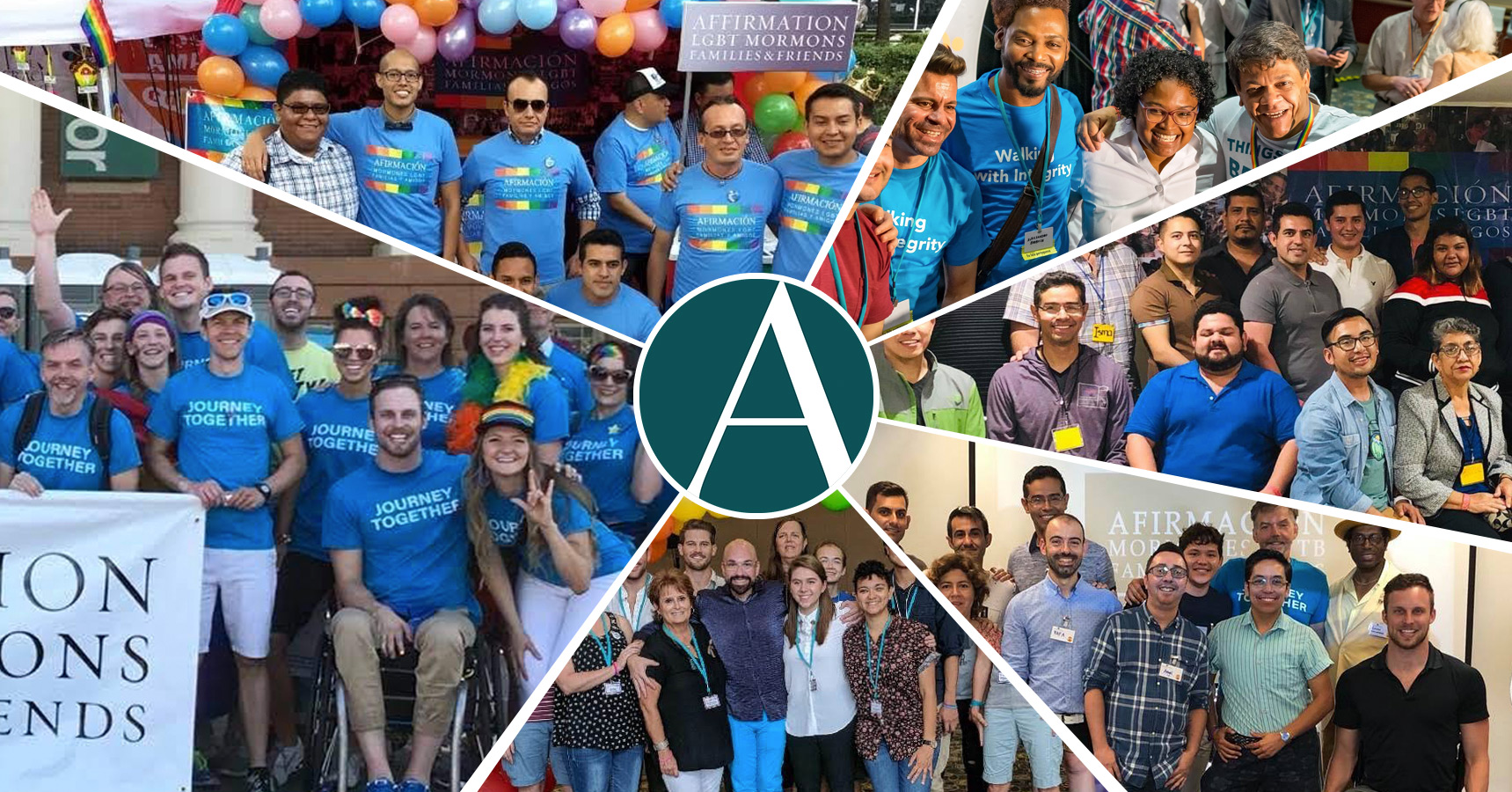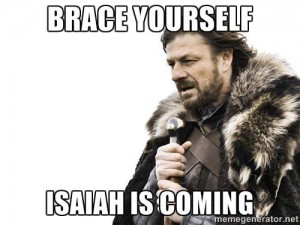The Book of Mormon Quest Begins

By John D. Gustav-Wrathall
July 27 was the official start date of the Affirmation Book of Mormon Challenge. To date, about 170 individuals have joined the Facebook group and are participating in the challenge.
One of the beautiful things about the challenge has been to experience a breadth of perspectives, and such heartfelt, poignant questions. Some participants come from a perspective of faith, others from a perspective of doubt. There’s no “curriculum,” no “right answers,” no questions that are “off limits.” It’s just each of us honestly engaging with this sacred text, examining our reactions to it, and opening ourselves to possibilities. What has been most powerful, for me, is LGBT Mormons and our family and friends coming together, in Nephi’s words, to liken the scriptures unto ourselves (1 Nephi 19:23).
Many were inspired by a quote shared by a participant from Adam Miller’s Letters to a Young Mormon, “When you read the scriptures, don’t just lay your eyes like stones on the pages. Roll up your sleeves and translate them again. Every morning and every night, we are each commanded to sit down at our kitchen tables, spread out our books and notes and papers and pens, and, with a prayer in hand, finish what Joseph [Smith] started. It is not enough for Nephi to have translated Isaiah into reformed Egyptian or for Joseph to have translated Nephi into King James English. You and I must translate these books again. Word by word, line by line, verse by verse, chapter by chapter, God wants the whole thing translated once more, and this time he wants it translated into your tongue, inflected by your native concerns, and written in your native flesh.”
As LGBT Mormons, we frequently find ourselves in emotional, spiritual or social turmoil, as we face family rejection and misunderstanding from fellow Mormons, or as we wrestle to come to terms with conflicting emotions we feel within ourselves. So many of the texts we’ve read together so far have offered inspiration, to the extent we are able to see ourselves in them. One participant posted an image of the sunlight breaking through clouds over a calming ocean, and quoted 1 Nephi 18:21: “And it came to pass that I prayed unto the Lord; and after I had prayed the winds did cease, and the storm did cease, and there was a great calm.”
An interesting and long discussion was provoked when one participant posed the question, “So in 1 Nephi 3:7-8 Nephi says ‘I will go and do the things the Lord hath commanded, for I know the Lord giveth no commandments… save he shall prepare a way for them that they may accomplish the thing he commandeth them.’ Gay men from my generation were told to fast, pray, magnify our callings, etc., so that our “same sex attraction” would go away. And we could get married, fulfill the commandment to ‘multiply and replenish the earth.’ A way was not prepared that we could accomplish the thing we were commanded. How do you reconcile that?” The discussion included perspectives on how to discern when a commandment is personally directed to us and when it is not.
Although applying insights from the Book of Mormon to the challenges we face in relation to being LGBT and Mormon is very important to the group, we often also find ourselves wrestling with larger, existential questions, such as the perplexing questions raised regarding faith and violence by 1 Nephi 4 (the slaying of Laban). “Pacifism, in and of itself,” one participant wrote, “Is not necessarily a virtue.” Laban’s death, other readers concluded, was the logical result of his own corruption and violence. Participants put themselves in Nephi’s shoes, trying to understand the emotions he must have felt. Was he “firm and unflinching” or “wrestl[ing]… to see the logic and consistency in the Lord’s commandment”?
Some have approached the text with leavening humor! “Brace Yourself! Isaiah Is Coming!”
Others have really opened their hearts.
One of the most raw, poignant moments in the group came as one lesbian participant wrestled with images of “light” and “dark” in the Book of Mormon, and what it might imply about inherent racism in the text:
So after a hard workout, a prayer and a ugly cry (all at the same time) I’m feeling a lot better this morning. As one would. Thanks for all the responses. I think I was front loading the snark and looking for things to be outraged about to keep the book emotionally distant. I [have] been worried about being converted! What if this is a hugely spiritual experience? What the hell am I going to do if my freaking bosom burns? What if it converts me into a literal believer?!? Horrors! I’m prepared to think it’s bs, not at all prepared to think it’s true. While I was sobbing and praying on the elliptical yesterday, I sort of played out the worst case scenario of what would happen if I gained a testimony of the BoM, and guess what? Nothing changes. There’s still not going to be a place for my family in this church. I’m gonna spend a couple of days really leaning into being sad about that. Because it is sad, and will be a little sadder if I do find meaning in this book. So the sooner I get comfy with that, the sooner I’ll be able to find that meaning.
For me, this so perfectly captured the power of this spiritual exercise we’re engaging in. Regardless of where we end up, there can be no greater respect for the Book of Mormon than to engage deeply and personally in this way, and to be real with our emotions and the implications of our personal spiritual quest.
We’re committing to read a chapter a day. Late-comers are still welcome! Read at your own pace, and share your thoughts, prayers, questions and insights on the Facebook group in English or in Spanish.
